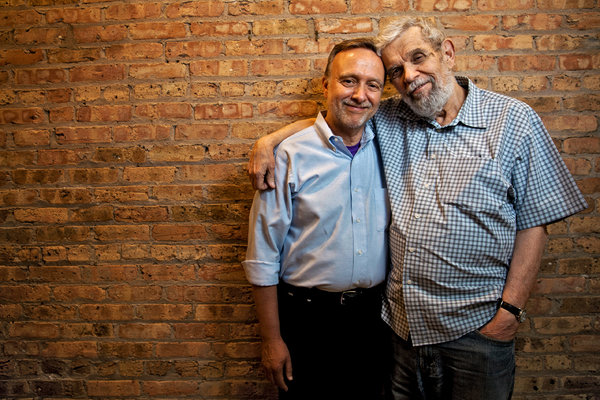“Transsexualism is about life” (Green, 89). Unfortunately, the few images of transsexual people in contemporary society rely heavily on negative stereotypes that inaccurately depict transpeople. For example, as I mentioned when blogging about Queer (In)Justice, transpeople are frequently depicted as serial killers, think Psycho and Silence of the Lambs. These stigmatizing portrayals run counter to one of the truths of transexualism as put forth by Jamison Green in Becoming A Visible Man: “transsexualism is about life.” The Staff at IntraSpectrum Counseling in Chicago agree with Green. If one’s physical body does not match one’s true self, this disconnect can affect every aspect of life.
Through compelling personal stories, Green shares his journey of accepting himself as a female-bodied man and undergoing the rigorous process of aligning his physical body with his true self. While he offers insight into the female-to-male transsexual experience, he also makes his story more universally applicable by including analysis of societal responses to gender variance. One response that he touches on is the reaction of the psychological community. While he notes that this topic deserves a much more comprehensive discussion, he does pinpoint some of the current shortcomings in assessment. Specifically, Green decries the diagnosis of “gender identity disorder” in his chapter “Body of Knowledge.” He argues that the transpeople have a medical condition, not a psychological issue. He also contends that it is inaccurate to assume that transpeople are “mentally disturbed” solely because of their transsexualism.
IntraSpectrum Counseling concurs with Green, and our staff also agree with his next point: “but right now I have no better idea how they [medical doctors and surgeons] can be certain that patients are good candidates for hormonal and surgical sex reassignment, that they have the inner fortitude it takes to end up as healthy human beings following such treatment” (93). For this reason, the transgender counseling services offered at IntraSpectrum are through the lens that transidentities are legitimate and are not, in and of themselves, indicative of mental disorder. Nonetheless, in order to qualify for the medical services that one may need in order to align the physical and psychic selves, clients must meet specific diagnostic criteria. As such, IntraSpectrum therapists are specially trained to work sensitively and responsibly with this often misunderstood population. The therapists also recognize that transpeople may also suffer additional obstacles as wider society remains fixated on the gender binary, and they can help transpeople navigate through such societal ignorance. In short, IntraSpectrum Counseling therapists offer a non-judgmental environment in which clients can share their experiences as transpeople and discuss the best treatment options for their needs. The counselors can also refer clients to additional resources, like Green’s revelatory book. If you are looking for a bisexual, lesbian, or gay therapist in Chicago, we may be able to help.





 Today, July 26th, is National Disability Independence Day. This annual commemoration marks the day in 1990 when the Americans with Disabilities Act (ADA) was signed into law. The ADA enshrined several crucial civil rights protections for individuals with disabilities, but it still falls short of its intended goals after over 30 years on the books.
Today, July 26th, is National Disability Independence Day. This annual commemoration marks the day in 1990 when the Americans with Disabilities Act (ADA) was signed into law. The ADA enshrined several crucial civil rights protections for individuals with disabilities, but it still falls short of its intended goals after over 30 years on the books.